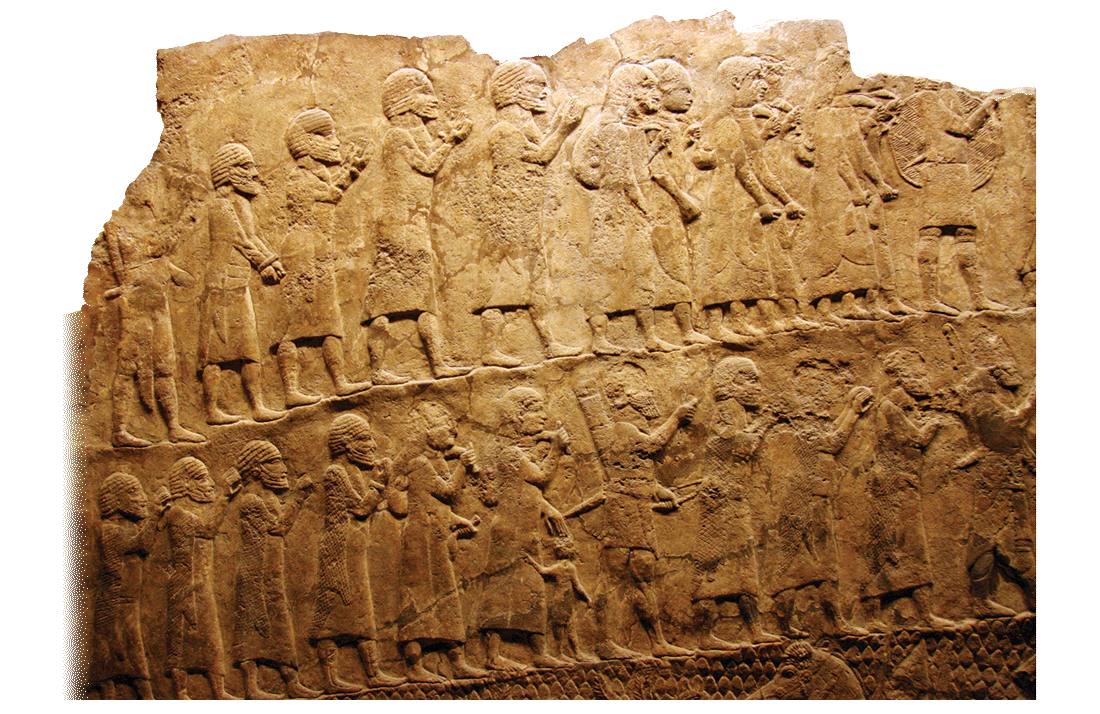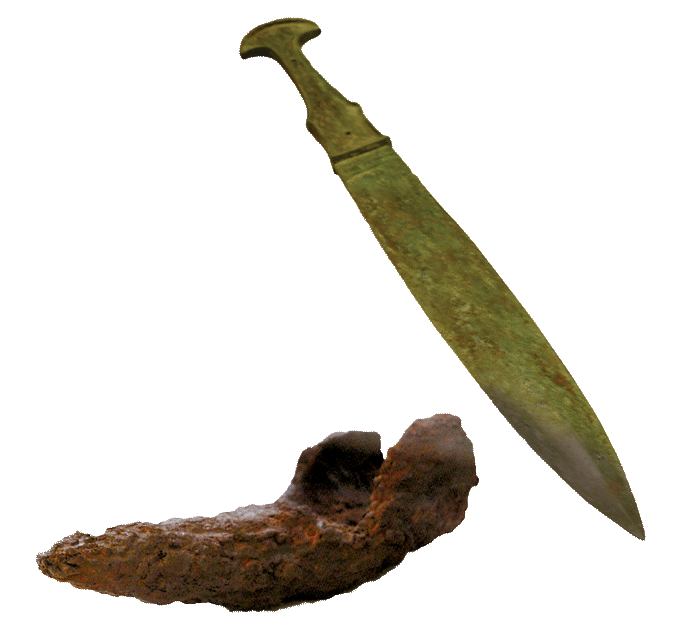Micah
Justice, Judgment, and Hope for the Future
Central Teaching
Because of the idolatry and unjust lifestyles of Israel and Judah, God judges them. Yet beyond the judgment a deliverer is coming to restore God’s people.
Memory Verse
Setting
Micah overlapped with Isaiah, Amos, and Hosea, prophesying during the reigns of Jotham, Ahaz, and Hezekiah (in the latter years of the 700s, or eighth century, BC). In 722 BC the Assyrians conquered the northern kingdom of Israel and completely destroyed the capital Samaria. Then in 701 BC the Assyrians laid siege to Jerusalem, but the Lord intervened for King Hezekiah and defeated them (2 Kings 17–20; Isa. 36–39). Micah preached in this context.

Dominating the historical background for Micah is the expanding Assyrian Empire. Pictured here from a wall relief in Sennacherib’s palace is a scene of captured people being deported.
Message
The name Micah means “who is like the Lord.” Micah cries out for justice in the land. He is particularly critical of Israel’s leaders and their lack of justice. As a result of the lack of justice and due to the pervasive idolatry in Israel and Judah, Micah declares that the judgment of God is coming (the Assyrian invasion). However, Micah also declares a glorious time in the future when God will send a deliverer and restore his people.
Micah is a typical preexilic prophet, and the essence of his message falls in line with the three standard themes of the prophets:
- You (Judah/Israel) have broken the covenant; you need to repent!
- No repentance? Then judgment!
- Nevertheless, there is hope beyond the judgment for a glorious, future restoration, both for Judah/ Israel and for the nations.
As in many of the other prophetic books, when Micah declares that Israel and Judah have broken the covenant, he focuses on three major sins: idolatry, social injustice, and religious ritualism. Likewise (in keeping with the other prophetic books), the book of Deuteronomy provides the theological background for Micah’s message. When Micah declares that Israel and Judah have broken the covenant, he is referring to the covenant as formulated in Deuteronomy.

“They will beat their swords into plowshares” (Mic. 4:3). Pictured here are an ancient sword and an ancient plowshare.
Outline
Interesting Features
- Micah presents a very colorful wordplay on various cities (1:10–15).
- Micah prophesies that the future Deliverer/Shepherd will come from Bethlehem (5:2).
- Micah uses the powerful imagery of hammering swords into plowshares to symbolize the peace that the Messiah will bring (4:3).

The Church of the Nativity in Bethlehem. Micah prophesies that the coming Deliverer/Shepherd will come from Bethlehem (5:2).
Connections
Micah 6:6–8 is especially applicable today. What does God want from us? Is ritual enough (e.g., extensive church attendance)? Obviously not. God wants our lives to be characterized by justice and a deep, zealous desire for love and mercy as we live day by day in close relationship with him, humbly recognizing him as our Creator and Savior. Only in this context do our rituals (how we do church) have meaning and reflect true worship and adoration of God.
Micah’s clear identification of Bethlehem as the place where the coming Messiah will be born (5:2) illustrates the powerful predictive aspect of the Old Testament prophets, confirming that Jesus is indeed the fulfillment of the Old Testament. This should encourage us to trust in God, who clearly has control of history and is moving to bring about his plan.